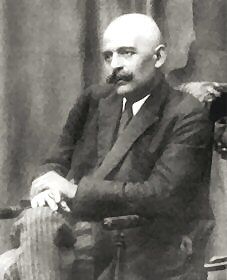Guilt
How to Be Honest
Advice from Mystic George Gurdjieff
Posted December 14, 2020 Reviewed by Lybi Ma
George Gurdjieff was a mystic, radical teacher, and unconventional psychological thinker. Last month I posted a short, animated video about his ideas on not taking things too personally. This week, I am posting another animated video about his challenge to speak our truths in a way that does not hide behind defensiveness, comfort, or guilt.
Here’s the video, which is the substance of this post. The video says about all I mean to say about Gurdjieff and honesty, honestly.
Essentially, Gurdjieff was saying that when we declare our “truth” we are often just hiding behind a wall of self-protection. To actually speak the truth might require a more radical forgetting of the most familiar sense of self. Some people, Gurdjieff said, “cannot help expressing [their] unpleasant emotions, simply because [they are] weak. …The expressing of unpleasant emotions [is a manifestation] of his weakness, his impotence, his inability to control himself. But not wishing to acknowledge this weakness to himself, he calls it 'sincerity' or 'honesty' and he tells himself that he does not want to struggle against sincerity, whereas, in fact, he is unable to struggle against his weaknesses... What a man calls 'sincerity' in this case is in reality simply being unwilling to restrain himself. And deep down inside him, a man is aware of this. But he lies to himself when he says that he does not want to lose sincerity” (In Search of the Miraculous).

In the end of the video here, I suggest that fasting was one solution Gurdjieff offered – one way to shed the usual defenses of the self and encounter a way of being that is radically exposed. Gurdjieff's disciple Ouspensky described the fasts as "accompanied by special exercises. In the first place, Gurdjieff explained [that] the difficulty in fasting consisted in not leaving unused the substances [of digestion which if left unused] will poison the organism. They must be used up. But how can they be used up if the organism gets no food? Only by an increase of work, an increase of perspiration. People make a tremendous mistake when they try to 'save their strength,' make fewer movements, and so on, when fasting. On the contrary, it is necessary to expend as much energy as possible. Then fasting can be beneficial… Gurdjieff made us run in the heat, doing a round of two miles, or stand with extended arms, or mark time at the double, or carry out a whole series of curious gymnastic exercises which he showed us” (In Search of the Miraculous).
That odd journey past personal defenses is sometimes done through a miraculous breakdown.


